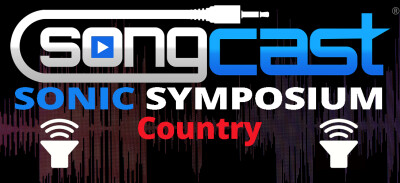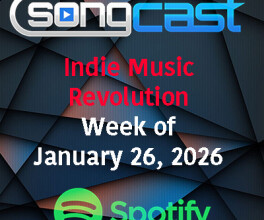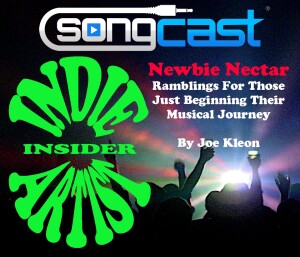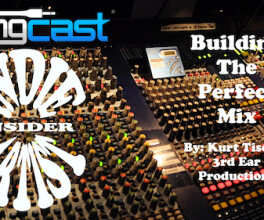I’ve written a bit about the paradigm shift I’d like to see in music in an article about how production and distribution has already changed. While the paradigm of music production may have shifted, indie artists are still left with a need to find and connect to an audience. In other words, we need marketing.
marketing
Daniel Morones described the problem exactly when he told me: “I’d like to find a firm that I can work with for months/years who produce tangible results and not just be a quick buck for them. I’ll gladly pay if I can see results.”
When Daniel and I discussed how he’s proceeding with marketing, he elaborated that simply hiring a PR firm is a gamble with no reasonable middle ground. Quotes he received varied from $300 for a five week campaign (“It’s so inexpensive that it sounds like they won’t do anything.”) to a three month campaign somewhere between $2500 and $3500 a month. As he put it: “Should I buy a nice mid-sized fairly new car or get PR?”
Marketing has always been an elusive piece of the puzzle for indie musicians. Unfortunately, despite huge advances in the digital tools available to us, it still is. While it’s true indies can pay marketers or publicists to get our name out there, 1) we’re broke and 2) as Daniel explained, we don’t see a guaranteed return on our investment. We’ve already assumed the production costs (modest as they may be) but assuming marketing costs is a bigger gamble. So we stick to what we know: promoting through our social media and live performances.
Marketing has the reputation of being either spaghetti thrown against the wall or total snakeoil. There is the example of the marketer I mention in my “Make Art. Don’t Ask Permission.” article who advises you, “It’s important for you and your band to look ahead and start planning for an album people will buy” because he’s got a “system” to sell you (i.e. snakeoil). And then there’s the marketer who speaks in generalities about how they’ll work with you (i.e. they’ll throw the spaghetti against the wall and see what sticks).
One reason for this reputation is that social media successes just confirm our suspicion that it’s an all-or-nothing gamble, a rockstar moon-shot. Sometimes you hit and you get a million plays. So why not throw the spaghetti?
Having been on both sides of that marketing equation (on marketing teams for my day job and as a musician / author looking for solutions for himself), I think the burden is on the marketers to prove themselves. As soon as a marketer claims that artists have to change the way they make art, I’m suspicious. Here’s the example I gave in the “Make Art” article:
I used to work for a camera company who made crazy cutting edge cinema cameras. Never did we, in marketing, tell the inventors of the camera we couldn’t sell it because it wasn’t like the other cameras on the market. We had meetings and we brainstormed and we figured out how to sell it. It was hard work. It was uncertain work. We didn’t know what would sell already.
How we change the paradigm
We can change this paradigm by creating new relationships between marketers and musicians. I’d like to see marketers (or “brand managers” or whatever) become partners with musicians rather than third-party contractors. During my most productive times, I’d have loved to pay a percentage to a person who made sure to get my name, my recordings, and my shows out there.
This is not that difficult a change to make: plenty of great people go into the business side of the arts already. Marketing-savvy people want to work with musicians. We’re just all trapped any time we rely on an out-dated paradigm of how the relationship between artist and marketer should work. Those business-minded boosters of art need to become marketers, not gatekeepers.
Marketers can suggest best practices but once they accept that a band or musician can produce and distribute their music on their own, they’re free simply to market that product. A partnership which accepts that both parties are investing time and money into the enterprise and both should profit seems a natural fit.
To a certain extent, this is happening. But the paradigm that marketing is just a team within a bigger team (like a label) still exists. Marketing still gets prioritized behind production. I still know people starting “labels” but not really doing any marketing of the music. The assumption, I guess, is that they’re promoting the label and the rising tide lifts all boats, but imagine a new model: marketers promoting single musical projects. We don’t need “labels.” We just need the marketing component of the label. So why don’t these exist? Where are the marketing teams that work with a band for a cut of profits, rather than an upfront investment?
Now that the production aspect of making music has become largely invisible we don’t need to cling to those vestiges of an old order. No longer are we printing thousands of CDs. No longer do we spend months in the studio making an album. We can make a few shifts in our thinking, foster some new relationships, and be rid of the gatekeeper paradigm. Nothing is stopping you from making your music and making it available all over the world.
Why do we still rely on a gatekeeper system of marketing?












































If you ask why… I think that the most relevant answer is that the musician nowadays has to wear lots of different hats. He or she should be a writer, a producer, an engineer, should play different instruments, should shoot a video and at the end of the day should be a marketer to market all the art produced. If (e.g.) I am interested in just playing guitar, it would be quite hard for me to carry all that stuff.